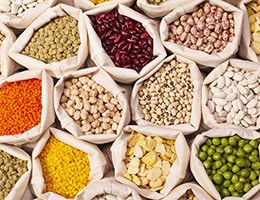 Copper is a chemical element that belongs to the group of metals and whose atomic number is 29 . This transition metal (due to its place in the periodic table of elements) is characterized by its brightness and reddish hue.
Copper is a chemical element that belongs to the group of metals and whose atomic number is 29 . This transition metal (due to its place in the periodic table of elements) is characterized by its brightness and reddish hue.
Along with aluminum and iron , copper is one of the most used metals. This is due, in part, to its great ability to conduct electricity , which allows it to be used in the manufacture of electronic and electrical parts and in the production of cables. Copper is also a malleable and ductile material that never loses its mechanical properties.
Human beings, in fact, discovered the benefits of copper in Prehistory . The period in which man began to make various tools with this metal is known as the Copper Age .
Beyond native copper (in its natural state ), various alloys are also used. The most popular is the alloy of copper and tin, which is called bronze . This alloy has great resistance to corrosion and friction. The alloy of copper and zinc, on the other hand, is called brass .
Copper in food
It is known that human beings need minerals for several of their vital functions, among which the production of hormones and the formation of bones stand out. To obtain these nutrients, the ideal is to eat a varied and balanced diet .
 The presence of copper in the crust of our planet is abundant. Its role in our body is essential; It is a very important element for life since it is involved in the development of red blood cells and contributes to maintaining the condition of bones, nerves and blood vessels. Human beings incorporate copper through drinking water and foods such as legumes (beans, chickpeas and lentils, among others).
The presence of copper in the crust of our planet is abundant. Its role in our body is essential; It is a very important element for life since it is involved in the development of red blood cells and contributes to maintaining the condition of bones, nerves and blood vessels. Human beings incorporate copper through drinking water and foods such as legumes (beans, chickpeas and lentils, among others).
This micromineral is also necessary to assimilate and use iron, allowing it to be distributed properly and act as it should. As can be seen, the functions of copper in our body are many and of great importance; Let's look at some more below:
* helps regulate enzymatic reactions, transport iron and produce ATP (the kind of energy our body can use);
* participates in the formation of hemoglobin and several enzymes, in addition to the already mentioned red blood cells;
* collaborates in the degradation of proteins, lipids and carbohydrates;
* helps the body assimilate vitamin C, so beneficial for our general health;
* In addition to collaborating in the maintenance of bones, it also contributes to the maintenance of the central nervous system .
In addition to the food sources mentioned above, we can also find copper in cereals, whole foods, nuts, raisins and prunes.
When there is not enough copper in our body , certain pathologies may arise, including osteoporosis, anemia, depigmentation (the skin becomes discolored), anomalies in the central nervous system (both its degeneration as various alterations), excess gray hair and loss of minerals.
It is important to note that excess copper is not beneficial for our body either, since it can be very toxic . Among the disorders that the toxicity of this mineral can cause are neurological problems, kidney and liver disorders. For this reason, workers who are exposed to copper in their daily tasks must protect their bodies with special equipment and follow certain prevention measures; Negligence on the part of companies is punishable by law.
